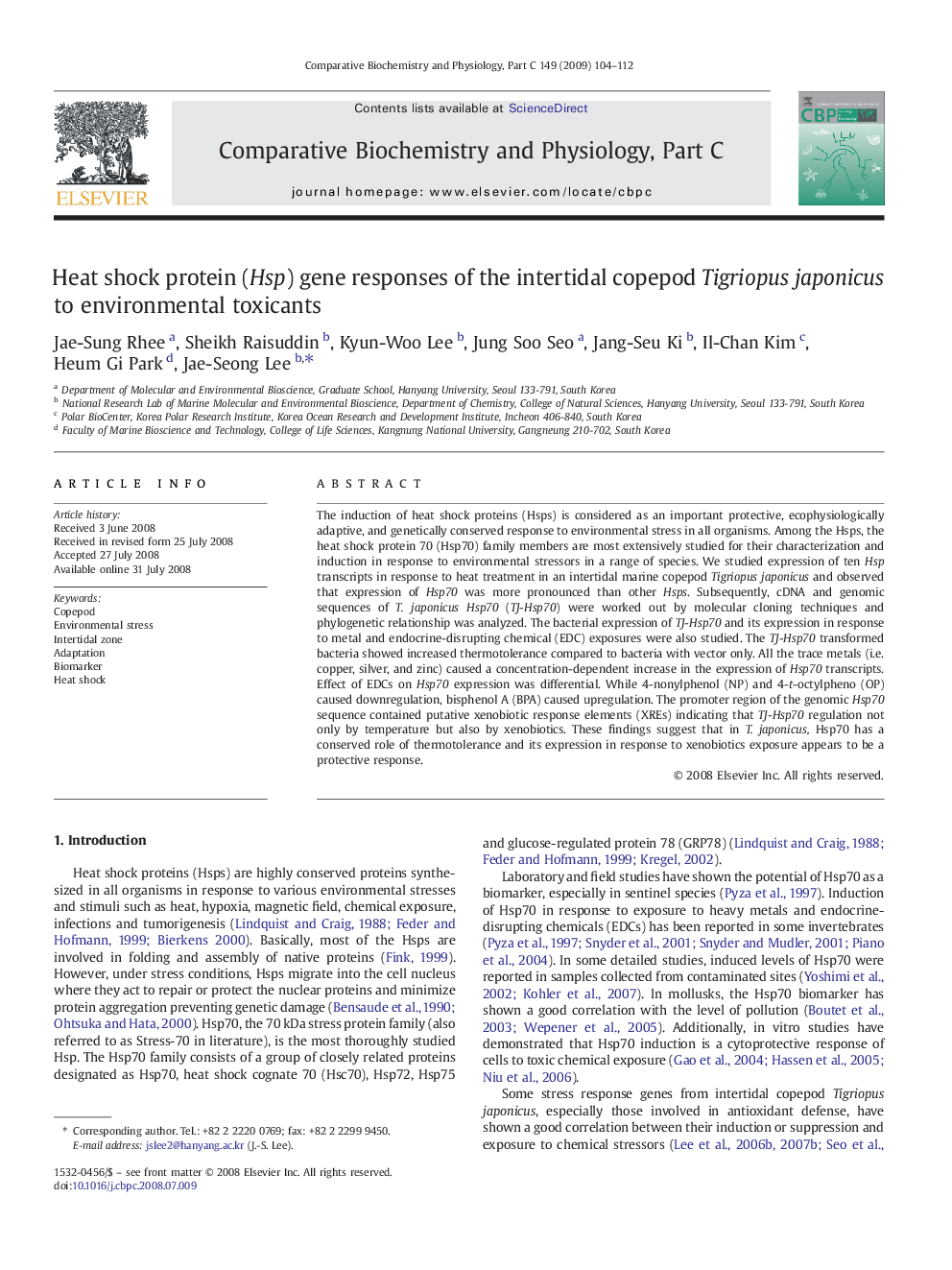| کد مقاله | کد نشریه | سال انتشار | مقاله انگلیسی | نسخه تمام متن |
|---|---|---|---|---|
| 1978278 | 1061535 | 2009 | 9 صفحه PDF | دانلود رایگان |

The induction of heat shock proteins (Hsps) is considered as an important protective, ecophysiologically adaptive, and genetically conserved response to environmental stress in all organisms. Among the Hsps, the heat shock protein 70 (Hsp70) family members are most extensively studied for their characterization and induction in response to environmental stressors in a range of species. We studied expression of ten Hsp transcripts in response to heat treatment in an intertidal marine copepod Tigriopus japonicus and observed that expression of Hsp70 was more pronounced than other Hsps. Subsequently, cDNA and genomic sequences of T. japonicus Hsp70 (TJ-Hsp70) were worked out by molecular cloning techniques and phylogenetic relationship was analyzed. The bacterial expression of TJ-Hsp70 and its expression in response to metal and endocrine-disrupting chemical (EDC) exposures were also studied. The TJ-Hsp70 transformed bacteria showed increased thermotolerance compared to bacteria with vector only. All the trace metals (i.e. copper, silver, and zinc) caused a concentration-dependent increase in the expression of Hsp70 transcripts. Effect of EDCs on Hsp70 expression was differential. While 4-nonylphenol (NP) and 4-t-octylpheno (OP) caused downregulation, bisphenol A (BPA) caused upregulation. The promoter region of the genomic Hsp70 sequence contained putative xenobiotic response elements (XREs) indicating that TJ-Hsp70 regulation not only by temperature but also by xenobiotics. These findings suggest that in T. japonicus, Hsp70 has a conserved role of thermotolerance and its expression in response to xenobiotics exposure appears to be a protective response.
Journal: Comparative Biochemistry and Physiology Part C: Toxicology & Pharmacology - Volume 149, Issue 1, January 2009, Pages 104–112